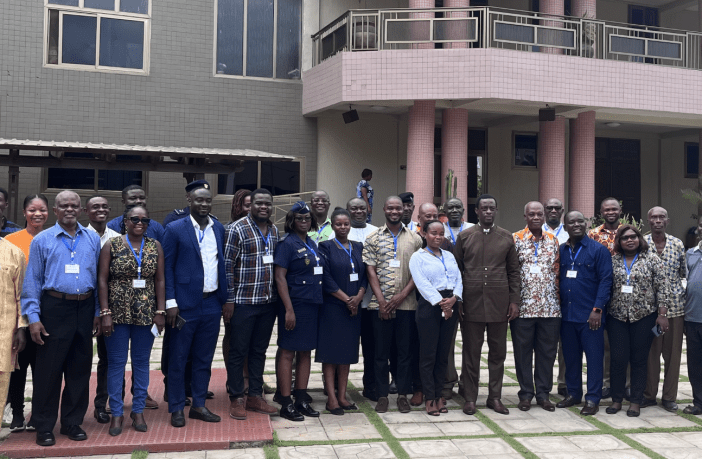|
Getting your Trinity Audio player ready...
|
Political interference, barrier to enforcing urban road laws on air pollution – stakeholders. Stakeholders in the road transport sector say political interference is one of the major barriers to enforcing regulations to manage air pollution on urban roads.
The frequent intervention by political actors and influential people to pardon persons who continuously flout regulations on air pollution on urban roads is worrying, they said, and called for its cessation.
The stakeholders said studies conducted in major cities in the country had proven that urban transport was a major source of tiny particles, which were dangerous to human health, yet regulation “is still lacking.”
These views were expressed at the first in a series of four fact-finding missions, held in Takoradi, to examine factors undermining poor implementation and enforcement of the law and make recommendations to enhance the effective implementation of the regulations.
The initiative, being undertaken by the Department of Biology, Environment and Occupational Health, University of Ghana, and its partners, would hold similar events in three other regions; Ashanti, Northern and Greater Accra.
Participating institutions included the Driver and Vehicle Licencing Authority, Ghana Consolidated Road Transport, GPRTU, Vehicle Dealers Associations and Garages, and Motor Traffic and Transport Department of the Ghana Police Service, Customs Division of the Ghana Revenue Authority and Ghana Private Road Transport Union.
Reverend Dr Isaac Edunyah, a Senior Lecturer at the Takoradi Technical University, said issues relating to air pollution were important due to its associated dangers.
“It is my first time hearing that seven million people die due to air pollution. The fact that it is killing millions and making people get serious short, medium and long-term sickness makes it very important to focus attention on and address it,” he said.
The strict enforcement of laws, he noted, could deal with bad drivers, poor vehicular maintenance, use of unstandardised parts and unlicensed drivers that contributed to air pollution.
Mr Robert Arthur, an Engineer at the Department of Feeder Roads, said the Department, realising the challenge posed by air pollution, ensured that contractors planted trees and kept dust under control during road construction.
“For instance, once air pollution mitigation measures costs are factored in the contract, the price increases. However, the impact of not doing that will be more expensive – killing and sickening people,” he indicated.
Dr Reginald Quansah, the Project Lead, said Ghana, despite being a leader in air pollution prevention and management in the West Africa sub-region, had high levels of air pollutants, hence the need for the fact finding.
Air pollution, he said, was killing more people than any other infection and was linked to diseases like hypertension, asthma, lung cancer, and cardiovascular morbidity.
“This is an important exercise because we are urbanising and that means pollution will increase. The laws must work to keep the levels low,” he said.
Dr Quansah stated that the discussion among stakeholders suggested that people refused to comply with regulations because they were ignorant of it.
Mr Desmond Appiah, the Country Lead for Clean Air Fund, a global philanthropic foundation tackling air pollution, says poor air quality not only posed health risks to the citizenry, but also had dire consequences on the country’s economic growth.
A World Health Organisation (WHO) report in 2018 had shown that about 28,000 people in Ghana died through complications caused by air pollution.
“Again, the World Bank has done a report, which has shown that the Ghanaian economy loses about $2.5 billion a year due to poor air quality, so there is the need to commit much attention to this issue,” he stated.
Though the country had laws and regulations on managing air quality, their enforcement was lacking, Mr Appiah noted, and that the workshop was part of activities to seek broader consultations to develop recommendations.
These recommendations would help influence policy directions to create an enabling environment to enhance effective enforcement of the regulations by the relevant mandated authorities.
“…We are doing this is to be able to work with authorities to know and tackle the root causes of enforcement challenges, so that we can positively impact the quality of air that we breathe,” he added.
Mr Kwabena Okyere Darko-Mensah, the Western Regional Minister, said the Government acknowledged the effects of air pollution and was urgently working to combat it.
It had, thus, put in place environmental regulations and working on catalysing the clean air movement while advocating solutions to air pollution.
Source: GNA





